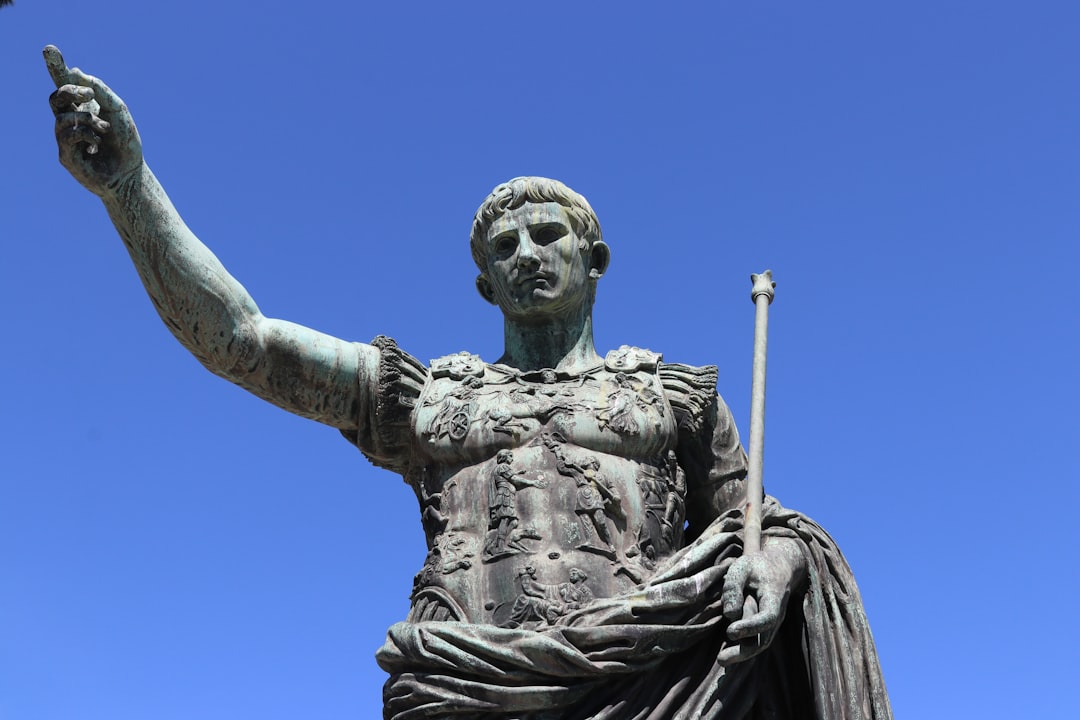Julius Caesar decided to spend the Spring of 45BCE in Southern Spain. He packed his bags and led his legions economy class through what is now the French Riviera and deep into the Iberian peninsula. But it wasn’t a holiday – Caesar was determined to obliterate the last Pompeian opposition to his imperial dream.
He got his wish at the Battle of Munda where his long-standing rumpus with Pompey came to a violent end. As usual Caesar was heavily outnumbered and for a while it looked as though the sons of Pompey the Great, Gnaeus and Sextus, would win the day. But in the heat of the battle, the great general dashed to the front line where he rallied his troops with stirring words and inspired them with his ferocious swordsmanship.
In the ensuing bloodbath, almost 30,000 Pompeian troops, including thousands of raw Spanish recruits, lay dead and the civil war came to an abrupt end.
So where did this landmark battle take place? That’s easy. For ancient Munda read modern day Monda (pictured below), a charming village in the Sierra de las Nieves Natural Park not far inland from Marbella. And the location for my historical novel, Libertas, which weaves a story of bravery, love and hope around that momentous battle. It helped that I lived there while writing the first of (thus far) seven historical novels, and it also helped when Monda’s own websites and the locals were adamant that this is where the battle took place. Done deal, never let the facts get in the way of a good story.
Okay, some historians believe it took place on the plains near Osuna, 120km further north. Damn, why can’t everything in life be simple? But the undeniable fact is that there aren’t many facts. BTW I’ve had a brief discussion with Simon Turney about this and we agreed to differ, and no one can doubt said author’s pedigree.
However, the terrain at Monda perfectly fits the description of the battle in Caesar’s own account: “The two camps were divided from one another by a plain about five miles in extent, so that Pompey, in consequence of the town's elevated position, and the nature of the country, enjoyed a double defence. Across this valley ran a rivulet, which rendered the approach to the mountain extremely difficult, because it formed a deep morass on the right.” Stretching North East from Monda, towards modern day Coín (Lacibis in Roman times), is what could be termed a broad upland valley where family-owned olive groves clothe a series of low hillocks. In front of Monda there is a brook, dry in summer, with a marshy area to the right as you look from this valley. In 45BCE there would have been no olive trees as these have been planted in ordered rows over the past few centuries – it would have resembled a plain amid the mountains – and on the town side of the brook is a steep incline, the ideal ground for Gnaeus Pompey to stand his ground and hope to draw Caesar on.
There is a small section of Roman road leading towards Monda – enough of an historical site to halt the progress of a new road – and in the town there are ancient springs that never dry up and would have made this a logical ancient settlement. The town would also have been easily defended in a siege with ample water and a steep incline to where early palisades and Roman walls could have been. A Moorish castle now stands on a steep hill above the town, and although local folklore says there was a fort there in ancient times, this cannot be proved. The remnants of the Pompeian army took refuge behind the walls of Munda and were under siege for several weeks.
Having researched the Battle of Munda, its causes and its effect on the politics of Rome, it was time to weave the story around the facts. Before the Romans came, the community was probably based on the simple things in life like hunting, animal husbandry, arable crops, baking bread and brewing. A lifestyle that remained unchanged in inland Andalucia until EC money built new roads for other Europeans to venture away from the Costas! That is the point – this happened in the 1st Century BC when the Celtiberian and Phoenician population came under the influence of the Romans, and towns like Munda became important satellite settlements in support of larger cities like Corduba (Cordoba) and Gades (Cadiz), often at the intersection of existing trade routes.
Rather than assume a collection of Pythonesque yokels whipping up rebellion and asking “What have the Romans done for us?”, I chose instead to develop the theme of an indigenous people who were creative and inventive in their own right. They understood herbcraft and lacked nothing for a full, healthy life. The hero in Libertas is not a warrior but a thinker. He is appalled at the horror that Rome brings to his home town.
I know the pitfalls – if accountants, plumbers and lawyers dress up as Romans on weekends to re-enact famous Roman battles, and read every book published on the subject, there’s bound to be someone who will take issue with my conclusions. But I still have the novelist’s get out clause – we’re fiction writers who make stuff up.
So to those who insist the Battle of Munda took place at Osuna rather than modern day Monda, I say this: You’re wrong. I found an old Polaroid of Julius Caesar dressed in full battle regalia when I was digging in my garden!
Visit https://linktr.ee/alistairforrest to find out more, including all of my historical fiction and my latest, Sea of Flames.





